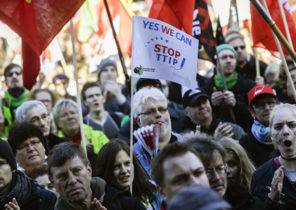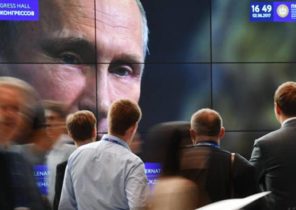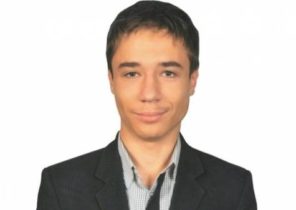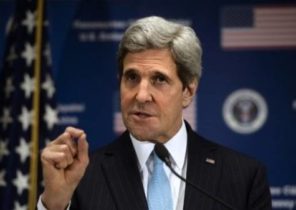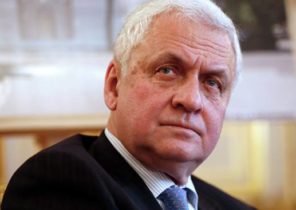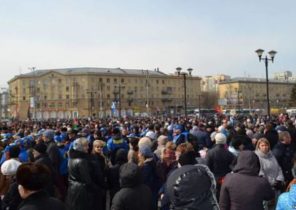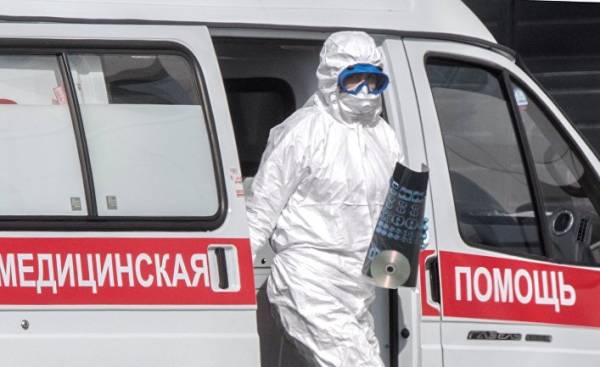
In a provincial Russian city Yoshkar-Ola where I live, coronavirus, initially met with a smile. Even when, as school lessons and University and the pair has moved online, and rode the trucks with loudspeakers and a call to stay home, the average inhabitant of our Republic of Mari El still didn’t take the situation seriously.
By a strange coincidence, a voice from the speakers recalled the infamous newsletters about the invasion of the Nazis in 1941 — but the irony of my adult students were ridiculed. The virus was still far away, and even his onslaught on overseas capital was nothing like the catastrophe of the Second world war. Quarantine rekomedatsii not at first observed. Most of them were ignored.
But it didn’t last long. In the first case was in early April, soon followed and the first death of 37-year-old employee of corrections contracted the virus from a visitor from Moscow. Followed by isolation, and more than a hundred of her colleagues came under scrutiny. Currently, we are not allowed to leave the house more than a hundred yards without permission. In public areas be sure to wear a mask. Disobedience punishable by a fine.
I am the man from the West, and the Russian measures against coronavirus I was somewhat discouraged. Many consider Russia an authoritarian country with a strong President whose power — both theoretically and practically — possible to tell, unlimited. However, in the reaction of the Russian authorities to the epidemic sense of caution and uncertainty.
In their statements at an early stage Vladimir Putin assured Russians that the situation is under control, although regional leaders have sounded the alarm that worn out Russian medicine can not cope with the crisis. In addition, there has been confusion about how these measures will be observed in practice: the border was closed and flights canceled, but the school where I teach, I am still waiting — it is a private institution and the state rules do not apply. Until the third week of April, when some agencies have suggested that the quarantine will last until June, Putin still hoped to hold on may 9 in red square in the annual Victory day parade.
However, by the end of the month, Putin has already warned the country that the worst is yet to come. Russia became the eighth in the world by the number of cases, and told us that the peak of the epidemic has not yet passed. There are plans to gradually ease the restrictions from mid-may, but the final decision will be taken by the governors.
In their attempts to find the right measures against the coronavirus, Russia is not unique. And while many Western media were quick Russian response to criticize — especially emphasizing the low official number of cases in late March and early April — it is reasonable to assume that the testing was initially carried out less strictly, as in the US. Celebrated the passion of the Russians in conspiracy theories — though it can hardly be considered a feature of the typical Russian. The idea that the virus is a kind of biological weapon found in Russia, your response — as in many other countries.
The rest of the Russian reaction to the coronavirus has shown me how different this country to the other. And I also realized that many of my experiences — due to the fact that where I grew up, generations used to take stability for granted.
I moved to Mari El, one of the ethnic republics of Russia, because he had married Marijke. She has a doctorate from the University of Toronto, and my culture she is familiar; its the same for me — a mystery. Marie is a small indigenous people of the Middle Volga region. They have their own language of the Finno-Ugric family, quite unlike Russian, and their own religion, but their culture bears the indelible mark of the Russian colonization of tsarist times and Soviet industrialization and collectivization of the 20th century. Since my job gives me a certain degree of geographic freedom, and my wife has completed a research project on new religious movements in Russia, we decided to spend a year in her hometown.
Like many other indigenous peoples of Russia, Mari, caught in the grip between the empires, and their place in the Volga region, paradoxically, put them at the center of Russian history and on its periphery at the same time. In addition to the three centuries of war, colonization and serfdom, only in the last century my wife’s family survived the Great famine in the Volga region, the Stalinist collectivization, the GULAG, world war II (when all the men went to the front, and women and children are left to live hand to mouth), and total economic decline after disintegration of the USSR. How horrible was the coronavirus, he is unlikely to be compared with “shock therapy” of the 1990s — was first industrialized world have not seen the dramatic decline in life expectancy. When introduced the lockdown, my family didn’t even have to stock up on potatoes or onions — they always have it at home warehouse for a rainy day. They remember what a disaster.
Against the background of what happened before, the last 20 years — a period of relative stability. Yes, the Russian economy suffers from low growth, and civil liberties of certain minorities, especially the LGBT community, violated — but there is a feeling that if I didn’t go into politics and work hard, you can achieve a certain prosperity. The promise of stability for the legitimacy of the government is very important — that’s why, I think, the Russian government approached the pandemic so carefully. If originally scheduled for April 22, a referendum will be held and a new Constitution is adopted, Mr. Putin will be eligible for re-election, as long as they’re eighty. But he sits in power so long precisely because many Russians still remember what it feels like when there is no stability.
Here’s what I learned coronavirus: I think that in politics I was disappointed, I still expect that the system will satisfy basic human needs. My wife is different: the notorious Russian cynicism — not just a national trait, but a habit of mind, developed a severe experience. And like other protective mechanisms, it aims at survival and not going to change.
I’m not a hardened cynic. I believe that the crisis is also a chance to establish a new type of stability, without a mass resettlement of the victims of globalization, without the demonization of minorities and non-predatory exploitation of nature. Maybe it’s another facet of canadian medium naive — time will tell.
Andre forget is a canadian author and editor
